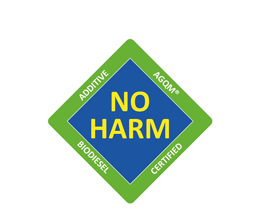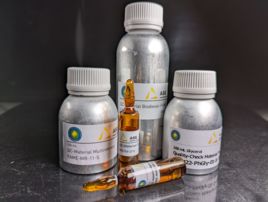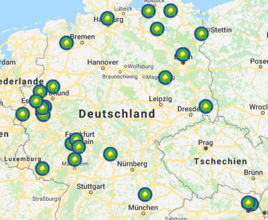New Approval List for the use of biodiesel in inland navigation published
The new approval list includes engines for inland navigation for which the manufacturer has authorized the use of biodiesel. Scania Marine Engines in particular stands out for its numerous approvals for pure biodiesel (B100). Other manufacturers allow blends such as B7 (up to 7 percent biodiesel), B20 and B30. Biodiesel reduces the emissions of particulate matter, is not classified as a dangerous good and has the lowest water hazard class.
“Biodiesel is ideally suited for inland shipping. In the event of an accident, the damage to the environment would be significantly smaller than with fossil marine diesel, since biodiesel is more easily biodegradable,” said Managing Director of the Waste-based Biofuels Association (MVaK), Detlef Evers. The Association is one of the publishers of the approval list, together with the Association Quality Management Biodiesel (AGQM), the Union for the Promotion of Oil and Protein Plants (UFOP) and the Association of the German Biofuel Industry (VDB).
“With the approval list, we show that in many cases higher blends of biodiesel can already be used today in order to significantly reduce CO2 emissions in inland shipping. In Germany, biodiesel is mainly produced from rapeseed oil and used cooking oil,” said Elmar Baumann, Managing Director at VDB. For shipping in Germany and in many other European countries, there are currently no requirements for reducing CO2. Neither is it included in the European Union's emissions trading system at present. Because the renewal rate of the inland shipping fleet is low and some ships will still be in use for many years, it is particularly effective to protect the climate by using biodiesel in the existing ship fleet.
"Sustainably produced biodiesel is ideally suited to reduce greenhouse gas emissions in sectors such as inland shipping, where hardly any other technical solutions are available in the medium and long term," said Stephan Arens, Managing Director of UFOP. Biodiesel reduces greenhouse gas emissions by 65 to 93 percent compared to fossil fuels. In accordance with legal provisions, biofuels must be produced sustainably. For this reason, rainforests must not be cleared, peat bogs drained, or grassland plowed up to produce feedstocks. The correct classification of waste and residues is controlled by certification systems, too.
Most engine manufacturers recommend using biodiesel whose suppliers and producers have a controlled quality assurance system. The assured quality of biodiesel is a crucial component if ship engines are to be operated with B100 or biodiesel blends.
“AGQM uses rigorous test procedures to ensure that the current requirements of the applicable quality standards are met in the processes of production, trade and transport. Our requirements are even stricter than the relevant DIN EN 14214. By taking unannounced samples from our members, we show that the biodiesel they produce complies with our stricter quality criteria and that the resulting fuel is therefore of excellent quality", emphasized Dr. Richard Wicht, Managing Director of AGQM.
Contact:
Dr. Richard Wicht, Managing Director at AGQM e.V. (vasb@ntdz-ovbqvrfry.qr)





